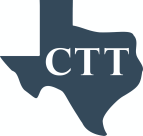Safety and Efficacy of G-Pen Compared to Lilly Glucagon for Hypoglycemia Rescue in Adult Type 1 Diabetics
| Status: | Completed |
|---|---|
| Conditions: | Endocrine, Diabetes, Diabetes |
| Therapuetic Areas: | Endocrinology |
| Healthy: | No |
| Age Range: | 18 - 75 |
| Updated: | 11/1/2018 |
| Start Date: | March 15, 2017 |
| End Date: | September 25, 2017 |
G-Pen (Glucagon Injection) Compared to Lilly Glucagon (Glucagon for Injection [RDNA Origin]) for Induced Hypoglycemia Rescue in Adult Patients With T1DM: A Phase 3, Multi-center, Randomized, Blinded, 2-Way Crossover Study to Evaluate Efficacy and Safety
This is a blinded, randomized crossover study to compare the safety and efficacy of G-Pen
(glucagon injection) to Lilly Glucagon (glucagon for injection [rDNA origin]) for
hypoglycemia rescue of adult patients with type 1 diabetes.
(glucagon injection) to Lilly Glucagon (glucagon for injection [rDNA origin]) for
hypoglycemia rescue of adult patients with type 1 diabetes.
This is a blinded, randomized, Phase 3 comparative efficacy and safety study in adults with
type 1 diabetes. Patients will complete screening procedures up to 60 days before
randomization to determine eligibility before enrollment to the treatment phase.
The procedure for evaluating the efficacy of the G-Pen (glucagon injection) consists of
inducing hypoglycemia by intravenous administration of regular insulin diluted in normal
saline. Each participant will undergo two episodes of insulin-induced hypoglycemia, and in
random order will receive 1 mg G-Pen (glucagon injection) during one episode and 1 mg Lilly
Glucagon during the other episode. There will be wash out period of 7-28 days between
treatment visits.
Blood glucose levels will be monitored post-dosing, with a return of plasma glucose to a
concentration > 70 mg/dL within 30 minutes signifying successful hypoglycemia rescue. As a
confirmation of efficacy, subjects will complete a questionnaire concerning changes in
symptoms of hypoglycemia following treatment with glucagon.
Subjects will return for a follow-up safety visit 3-14 days following administration of the
final dose of glucagon.
type 1 diabetes. Patients will complete screening procedures up to 60 days before
randomization to determine eligibility before enrollment to the treatment phase.
The procedure for evaluating the efficacy of the G-Pen (glucagon injection) consists of
inducing hypoglycemia by intravenous administration of regular insulin diluted in normal
saline. Each participant will undergo two episodes of insulin-induced hypoglycemia, and in
random order will receive 1 mg G-Pen (glucagon injection) during one episode and 1 mg Lilly
Glucagon during the other episode. There will be wash out period of 7-28 days between
treatment visits.
Blood glucose levels will be monitored post-dosing, with a return of plasma glucose to a
concentration > 70 mg/dL within 30 minutes signifying successful hypoglycemia rescue. As a
confirmation of efficacy, subjects will complete a questionnaire concerning changes in
symptoms of hypoglycemia following treatment with glucagon.
Subjects will return for a follow-up safety visit 3-14 days following administration of the
final dose of glucagon.
Inclusion Criteria:
- diagnosed with type 1 diabetes mellitus for at least 24 months
- usage of daily insulin treatment
- random serum C-peptide concentration < 0.5 ng/mL
Exclusion Criteria:
- pregnant or nursing
- HbA1c >9.0%
- renal insufficiency
- hepatic synthetic insufficiency
- aspartate or alanine aminotransferase > 3 times the upper limit of normal
- hematocrit less than or equal to 30%
- use of > 2.0 U/kg total insulin dose per day
- inadequate bilateral venous access in both arms
- congestive heart failure, New York Heart Association class II, III or IV
- active malignancy within 5 years, except basal cell or squamous cell skin cancers
- history of breast cancer or malignant melanoma
- major surgical operation within 30 days
- current seizure disorder.
- current bleeding disorder, treatment with warfarin, or platelet count below 50,000
- history of pheochromocytoma or disorder with increased risk of pheochromocytoma
- history of insulinoma
- history of glycogen storage disease.
- positive for HIV, hepatitis C virus or active hepatitis B virus infection
- whole blood donation of 1 pint (500 mL) within 8 weeks
- active substance or alcohol abuse
- administration of glucagon within 28 days
- participation in other studies involving an investigational drug or device within 30
days
We found this trial at
7
sites
723 Southwest 10th Street
Renton, Washington 98057
Renton, Washington 98057
Principal Investigator: Leslie Klaff, MD, PhD
Phone: 425-251-1720
Click here to add this to my saved trials
1720 2nd Ave S
Birmingham, Alabama 35233
Birmingham, Alabama 35233
(205) 934-4011

Principal Investigator: Fernando Ovalle, MD
Phone: 205-934-4112
University of Alabama at Birmingham The University of Alabama at Birmingham (UAB) traces its roots...
Click here to add this to my saved trials
7940 Floyd Curl Dr.
San Antonio, Texas 78229
San Antonio, Texas 78229
210-949-0122

Principal Investigator: Douglas Denham, DO, CPI
Click here to add this to my saved trials
855 3rd Avenue
Chula Vista, California 91911
Chula Vista, California 91911
Principal Investigator: Robert Peters, MD
Phone: 619-427-1300
Click here to add this to my saved trials
Escondido, California 92026
Principal Investigator: Timothy Bailey, MD
Phone: 760-466-1523
Click here to add this to my saved trials
1929 Bayview Avenue
Toronto, Ontario M4G 3E8
Toronto, Ontario M4G 3E8
Principal Investigator: Ronnie Aronson, MD
Phone: 866-701-3636
Click here to add this to my saved trials
Walnut creek, California 94598
Principal Investigator: Mark Christiansen, MD
Phone: 925-930-7267
Click here to add this to my saved trials